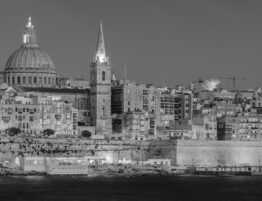
The Malta Tax Domicile of an individual is the most persistent tax connection recognised in Maltese tax law and is acquired from one’s father at birth or after reaching the age of 18 by choice. Losing one’s Malta tax domicile cannot happen without intent, action and strong resolve. Likewise, for a foreign non-dom person to acquiring tax domiciled status in Malta requires significant planning and implementation.
Malta Tax Domicile: Domicile of Origin
A person acquires tax domicile of origin at birth automatically from the father. Children born out of wedlock or losing their father, automatically adopt the domicile of their mother. Where the country of birth is different from the country of the father’s domicile, the father’s domicile prevails as the domicile of birth of that individual.
The strength of the domicile of origin is demonstrated by the automatic revival of this domicile upon abandoning the domicile of choice without the acquisition of a new one. The tax domicile of origin remains relevant throughout the life of the person as domicile retains its capacity for revival.
Malta Tax Domicile: Tax Domicile of Choice
It is very difficult to renounce the domicile of origin. Only upon reaching majority can a person exercise legal capacity to adopt a new domicile – a domicile of choice. However, the burden of proof of the acquisition of a tax domicile of choice falls upon the taxpayer claiming this change in tax domicile.
To lose one’s domicile of origin one must acquire a domicile of choice. It is not sufficient to leave the country of domicile of origin permanently without clear evidence that the individual has no intention whatsoever to return to the country of his domicile of origin. In order to do so one must be able to prove that:
- He is resident in the new country.
- He intends to reside there permanently or for an unlimited time.
One must be physically present in a country in order to acquire the domicile of choice. One must also consider criteria such as the individual’s business and family interests in the new country of domicile, the ownership of any property there and any remaining ties with other countries.
Malta Tax Domicile: Tax Domicile by Operation of Law
To establish a definite legal system by which certain rights and obligations may be governed, the objective of the law is that no person shall be without a domicile. This is crucial today, especially because free movement has given not only rights to individuals but also obligations and in the interest of liability, it is necessary to hold that a person cannot posses more than one domicile at the same time.
Given the importance of having a domicile, in situations where one cannot establish the domicile of origin and is unable to make a choice, the law intervenes. The third kind of domicile is the domicile of dependence and it arises by operation of law.
The Domicile of Dependence
It is a domicile in which the law establishes a person’s domicile, such as in the case of a foundling, where the law provides that a foundling acquires the domicile of the country where he is found.
It has been held that as the domicile of origin requires the child to take the domicile of the father at birth, in the case where either the child’s father is dead or the child is illegitimate, the child acquires the domicile of the mother.
Until one has the legal capacity to adopt a domicile of choice, his domicile of origin will be replaced by domicile of dependence should the person on whom he is legally dependent adopt a domicile of choice elsewhere. This means that until a person reaches adulthood his domicile will shift according to the domicile of the person on whom he is dependent. Women take up their husband’s domicile upon marriage and such domicile is maintained even if they are legally separated or if the husband passes away (Attard, 2005).
Non Dom Status for Malta Residents
Foreigners considering taking up residence in Malta under whichever Malta immigration programme or any Maltese special tax programme, will oftentimes enjoy the benefit of non-dom status. Non doms who are resident in Malta are not subject to tax on their worldwide income and instead are subject to tax on income arising in Malta. Residence can be acquired under the special tax status programme the Malta Global Residence Programme requiring a yearly minimum tax payment of merely €15,000 and an upfront investment of only €6,500. Alternatively, one can acquire Permanent Residence for life for all the family under the Maltese Permanent Residence Programme by buying or renting a property in Malta.
Malta Tax Domicile Planning
Losing, acquiring or reviving tax domicile requires expert planning by experienced tax lawyers. For an expert tax consultation on Maltese tax domicile and residence planning, book a meeting with one of our tax lawyers. With over 20 years advising on Maltese personal and corporate tax matters, we look forward to assisting you with planning your relocation, residence or tax domicile in Malta.






